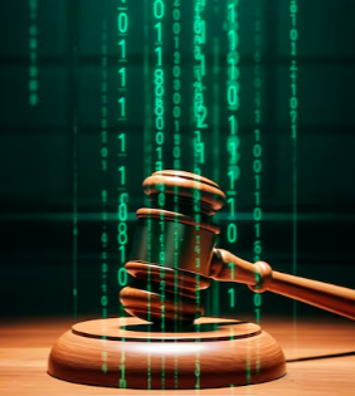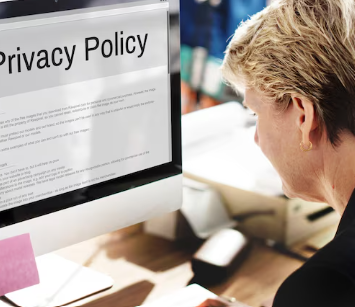The U.S. Court of Appeals for the Federal Circuit has reiterated its precedent that patent infringement notice letters can form the basis for personal jurisdiction for a declaratory judgment action, reversing and remanding a district court judgment that read the Court’s precedent to apply a bright-line rule that patent infringement notice letters and related communications can never form the basis for personal jurisdiction. We agree with Apple that the district court erred in this regard. Apple Inc. v. Zipit Wireless, Inc., No. 2021-1760 (Apr. 18, 2022)
By way of background, Zipit, a Delaware corporation with a principal place of business in South Carolina, first contacted Apple (in the Northern District of California) concerning Zipit’s patents directed to wireless instant messaging devices that use Wi-Fi to send and receive instant messages, in 2013. Over the course of three years, the parties exchanged several rounds of correspondence and met in person at Apple’s Cupertino, CA headquarters, discussing, inter alia, the possibility of Apple buying or licensing the patents and technical details regarding alleged infringement. The parties went so far as to exchange competing drafts of a license agreement in 2014 but did not reach any agreement.
Following another meeting, in January 2015, the parties exchanged letters and emails through 2016, regarding, inter alia, Apple’s alleged ongoing infringement of the patents. An October 14, 2015, letter addressed Apple’s alleged ongoing willful infringement. An April 7, 2016, email reiterated Zipit’s belief “that Apple has and continues to infringe.”
Over four years later, on June 11, 2020, Zipit sued Apple for patent infringement in the Northern District of Georgia, voluntarily dismissing the case without prejudice on June 24, 2020. Nine days later, on July 3, 2020, Apple filed a complaint in the Northern District of California seeking a declaratory judgment of noninfringement of the patents-in-suit. Zipit moved to dismiss Apple’s complaint for lack of personal jurisdiction. The district court, granting Zipit’s motion, cited Zipit’s “multiple letters and claim charts accusing Apple of patent infringement” and “travel[ing] to Apple’s offices in California to discuss these accusations.” This made the exercise of specific personal jurisdiction over Zipit “presumptively reasonable.”
The district court, however, explained that the Federal Circuit has held that “the exercise of personal jurisdiction . . . would be unconstitutional when ‘[a]ll of the contacts were for the purpose of warning against infringement or negotiating license agreements, and [the defendant] lacked a binding obligation in the forum.’” The court thus determined that the exercise of jurisdiction over Zipit would be unreasonable because of “Zipit’s lack of binding obligations tying it to California and because Zipit’s contacts with California all related to the attempted resolution of the status of” the patents-in-suit, i.e., “for the purpose of warning against infringement.” Accordingly, despite determining that Apple had established that minimum contacts existed with the Northern District of California and that Zipit had not shown the exercise of jurisdiction would be unreasonable, the district court dismissed Apple’s declaratory judgment action for lack of jurisdiction.
On appeal, the Federal Circuit noted that the sole relevant inquiry, given California’s long-arm statute, was whether assertion of specific personal jurisdiction over Zipit comports with due process.
Beginning with Zipit’s contacts with California, viz., multiple letters and claim charts accusing Apple of patent infringement and also traveling to Apple’s offices in California to discuss these accusations, the Federal Circuit agreed that minimum contacts were satisfied. The Court discussed its earlier decision in Xilinx, Inc. v. Papst Licensing GmbH & Co., 848 F.3d 1346 (Fed. Cir. 2017), where the defendant-patentee sent two notice letters to the declaratory-judgment plaintiff and eventually traveled to California to meet with the plaintiff to discuss allegations of infringement and potential licensing of the patents. The Xilinx Court explained that the defendant had “purposefully directed its activities to California when it sent multiple notice letters to [the plaintiff] and traveled there to discuss the [plaintiff’s] alleged patent infringement and potential licensing arrangements.”
The Court found the same was true here, saying that “Xilinx is virtually indistinguishable from the facts of this case.”
The Court rejected Zipit’s argument that it prior decision, in Autogenomics, Inc. v. Oxford Gene Tech. Ltd., 566 F.3d 1012 (Fed. Cir. 2009)), created a “bright-line rule . . . that cease-and-desist letters and related in-person discussions cannot support [minimum contracts for] personal jurisdiction.” The Court noted “material factual distinctions” between Autogenomics and this case. More importantly, per the Court, Federal Circuit precedent “as a whole—including decisions both before and after Autogenomics—” supported the determination that minimum contacts were satisfied here.
The Court also found that Zipit had not “present[ed] a compelling case that the presence of some other considerations would render jurisdiction unreasonable.” The Court began by addressing an error in the district court’s determination that the exercise of jurisdiction would be unreasonable, namely, concluding that it would be unreasonable to exercise jurisdiction over Zipit under Federal Circuit precedent solely because “Zipit’s contacts with California all related to the attempted resolution of the status of” the patents-in-suit, i.e., “for the purpose of warning against infringement.”
The Federal Circuit was emphatic: “This was error. As we explained most recently in Trimble [Inc. v. PerDiemCo LLC, 997 F.3d 1147, 1156 (Fed. Cir. 2021)], ‘there is no general rule that demand letters can never create specific personal jurisdiction.’”
The Court explained that its previously announced policy of allowing a patentee to inform others of its patent rights without subjecting itself to jurisdiction in a foreign forum, to foster settlement without litigation, must be considered with other factors in assessing whether the exercise of jurisdiction would be fair. Per the Court, “Indeed, we have repeatedly rejected the notion that the sending of a notice letter ‘can never provide specific jurisdiction.’”
The Court found that the district court in this case, “not having the benefit of our recent decision in Trimble,” erred by not considering the settlement-promoting policy as but one of many considerations in its overall analysis of the Burger King jurisdiction factors. “Specifically, the district court erred in reading our precedent as creating a bright-line rule that communications directed to ‘the attempted resolution’ of the parties’ dispute regarding the patents-in-suit trumps all other considerations of fairness and reasonableness.” The Court said (citations, quotations omitted):
Supreme Court precedent has made clear that jurisdictional inquiries cannot rest on such bright-line rules—there are no “talismanic jurisdictional formulas.” Rather, “‘the facts of each case must [always] be weighed’ in determining whether personal jurisdiction would comport with ‘fair play and substantial justice.’”
Addressing the “variety of interests” the Supreme Court has directed court to consider in assessing whether the exercise of jurisdiction would be unreasonable, the Federal Circuit, agreeing with the district court that minimum contacts were satisfied, held that Zipit had not satisfied its burden of showing that jurisdiction would be unreasonable. Briefly, the Court agreed with the district court litigating in California would create some burden for Zipit, given its ties to South Carolina. However, limited evidence from Zipit did not convince the Court that this would be so unreasonably burdensome as to be unconstitutional. Inter alia, the Court noted that representatives from Zipit traveled to California to meet with Apple in person to discuss alleged infringement and possible licensing. Quoting its earlier decision in Xilinx, the Court said, “[T]erritorial presence frequently will enhance a potential defendant’s affiliation with a State and reinforce the reasonable foreseeability of suit there.”
The Court also rejected Zipit’s argument that it could not have foreseen being haled into court in California because four years lapsed between its last contact with Apple in California and Apple’s filing of its declaratory judgment action. The Court noted that Zipit skipped over an important point, viz., it was Zipit who reignited the parties’ contacts by filing suit for patent infringement in Georgia in 2020. The Court found that, after moving to dismiss the Georgia action without prejudice, Zipit could not credibly assert that it could not have reasonably foreseen that Apple would respond in kind by filing a declaratory judgment claim, and that it would do so in its home state given Zipit’s earlier contacts with the forum.
The Court found that the remaining factors all weighed in favor of the reasonable of exercising jurisdiction here, or were outweighed by other factors.



